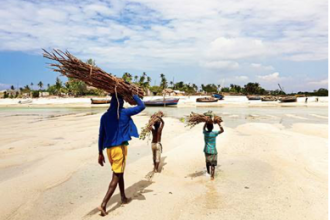
Webinar series on SDG 8 targets – the role of research in reaching sustainable economic growth, full employment and decent work conditions
Earlier this year, the SDG 8 Initiative introduced thematic reviews and discussion papers on the targets of Sustainable Development Goal 8 (SDG 8). In a series of three workshops in June (June 8th…





